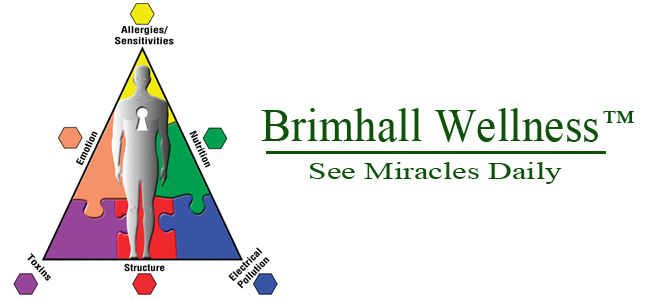
December 5, 2022 Puzzle Piece
Homecoming and Covid Long Haulers Treatment Protocols
I
include this next Quote and Statement from the FLCCC in this Puzzle
Piece for your information and insight that comes off the internet.
This is not how we think or treat but does let us see how
complicated the Long-Haul Condition can be and the symptomatic
expressions that can manifest.
[A quote from FLCCC:” FLCCC Announces Treatment Protocol for Long Haul COVID-19
A new protocol for patients suffering from Long Haul COVID-19 Syndrome
(LHCS) has been developed in a collaboration led by Dr. Mobeen Syed
(“Dr. Been”), Dr. Ram Yogendra, Dr. Bruce Patterson, Dr. Tina Peers, and
the Front Line COVID-19 Critical Care Alliance (FLCCC). The protocol,
I-RECOVER, is based on the group’s experiences using certain therapies
with a focus on the drug ivermectin. The group observed “consistent,
sustained, and often profound” clinical responses with the I-RECOVER
protocol. The protocol has also been used to treat post-vaccine
inflammatory syndromes with similar success.
LHCS consists of often debilitating symptoms such as malaise, headaches,
generalized fatigue, sleep difficulties, smell disorder, decreased
appetite, painful joints, dyspnea, chest pain and cognitive dysfunction.
LHCS does not only occur after severe COVID-19 cases – it often affects
mild-to-moderate cases and younger adults. LHCS symptoms after COVID-19
infection or vaccination can occur from 10% up to 80% of the time.
(LHCS from vaccination is likely due to monocyte activation by the spike
protein from the vaccine).
Studies of treatment options for LHCS are few, and there are no
pharmacologic treatments offered. Due to the large numbers of patients
suffering with LHCS around the world, the I-RECOVER protocol was
developed.
LHCS is very similar to the chronic inflammatory response syndrome
(CIRS)/myalgic encephalomyelitis/chronic fatigue syndrome and mast cell
activation syndrome. Delayed treatment with ivermectin when early
symptoms occur, will most likely cause a high viral load, which would
increase the risk and severity of LHCS.
As with all FLCCC Alliance protocols, the I-RECOVER may change as scientific and clinical data evolves.
Click here for FLCCC article and I-RECOVER protocol.”]
______________________________________________________________________________
We have written previous Puzzle Pieces and have recorded a
webinar on the Long-Haul subject. Let’s elaborate and clarify a few
points and protocols in this Puzzle Piece with a more natural approach
to prevention and treatment to allow better natural function and
immunity to dis-function.
We have seen new complications with this condition. The loss of smell
and taste have been persistent in many. This verifies the cranial
nerves are involved. My experience has demonstrated many of the cranial
nerves test weak when evaluated, not just those evaluated in taste and
smell. We test all 12 for evaluation and treatment with laser and
nutrition after testing and putting on display.
There are two cranial nerves that are involved with your sense of taste.
Facial nerve (CN VII), more specifically chorda tympani branch is
responsible for the anterior 2/3 of your tongue. Glossopharyngeal nerve
(CN IX) is responsible for the posterior 1/3 of your tongue. The
Olfactory nerve (CN I) is responsible for your sense of smell.
Besides the cranial nerve involvement, we have seen, and many patients
and physicians have documented there are residual organ and system
involvements after the initial symptoms dissipate. This can cause
symptomatic expressions and dysfunction throughout the body.
For evaluation, we have found the best results by utilizing Muscle
Response Testing with a vial Dr Marc Harris developed. We will
demonstrate this at Homecoming 2023 from January 19-22 in Tempe
Arizona.
A quick overview is we make sure we have an intact muscle to test that
is strong. We hand the Harris testing vial to the patient. If they get
weak while holding the vial, we suspect this patient to have long haul
involvement. Most patients demonstrate weakness to almost all muscles
while holding this vial if they test positive to it.
Dr Harris has developed a second (treatment) vial. When you place one
drop of this vial contents under the tongue, if the suspected condition
is involved, the muscles go strong that had been weakened by holding the
first (testing) vial. The next step is to Therapy Localize (TL) the
organs and systems to see if the patient goes weak again. For example,
if you touch the liver and a strong muscle goes weak, you suspect there
are residual affects from the original exposure of the Covid-19 virus
that has set a long haul set of symptomatic expressions to the liver
energetically. If you TL the Liver reflex and the patient remains
strong, you suspect the liver area not to be involved.
We frequently find 3-6 areas of involvement by using this evaluation
method. We then treat this area with specific OHS nutrition, spinal
adjustments, fascial percussion, lymphatic drainage, craniosacral,
laser, detoxication and emotional support from the Feelings Buried Alive book.
With the Liver TL in this scenario, we would recommend OHS Liver-Kidney
at one to three times per day along with the other stated treatment
above.
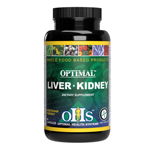
With this condition Opti-Immune Viral almost always tests positive.
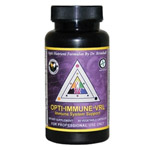
If the heart area Therapy Localizes (TL), we would test for Opti-Heart.
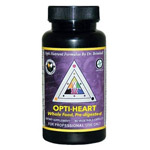
If the Lung area has a positive TL, we would test for Opti-Lung.
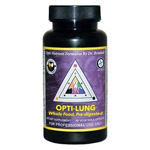
If the Eyes showed involvement, we would test for Essential Protect to strengthen the weak reflex.
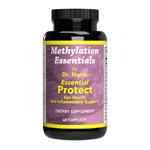
When the nutrition strengthens the weakness, we have found the
nutrition, along with the other mentioned treatment, will assist the
body in healing with its natural and innate capabilities.
At Homecoming, we will demonstrate each of the processes outlined in
this article. When the patient tests positive to the testing vial, that
vial is not sent home with the patient. If the one drop of the
treatment vial strengthens the patient, this vial may be sent home with
the patient and used at only one drop per day for one week. Do not
overuse this remedy. One drop per day for one week should be adequate.
The OHS nutrition however may be needed for two to three months to
support the affected organs or systems. Opti-Adrenal may be needed for
much longer. We have seen a high number of patients with adrenal
involvement. Adrenal support is necessary for structural and emotional
stability.
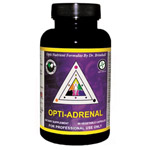
At HC, Dr Brett Brimhall and I will demonstrate all of the structural,
emotional, craniosacral, visceral adjustments or techniques associated
with the protocol.
Click the image below to Download the Cranial Nerve Protocol
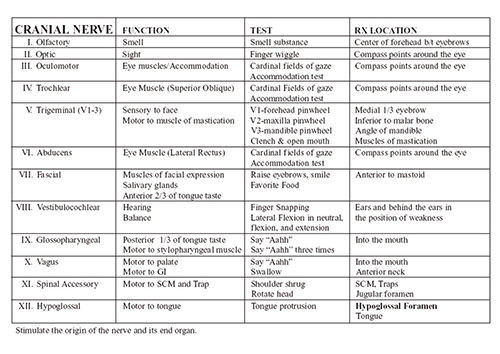
This Long-Haul condition can be involved in all ages and in conjunction
with many other symptomatic complaints throughout the spectrum.
See you at Homecoming 2023 in Tempe Arizona!
Yours in Health and Wellness,
John W Brimhall, DC, BA, BS, FIAMA, DIBAK
(Only registered customers can rate)
There are no comments for this product.